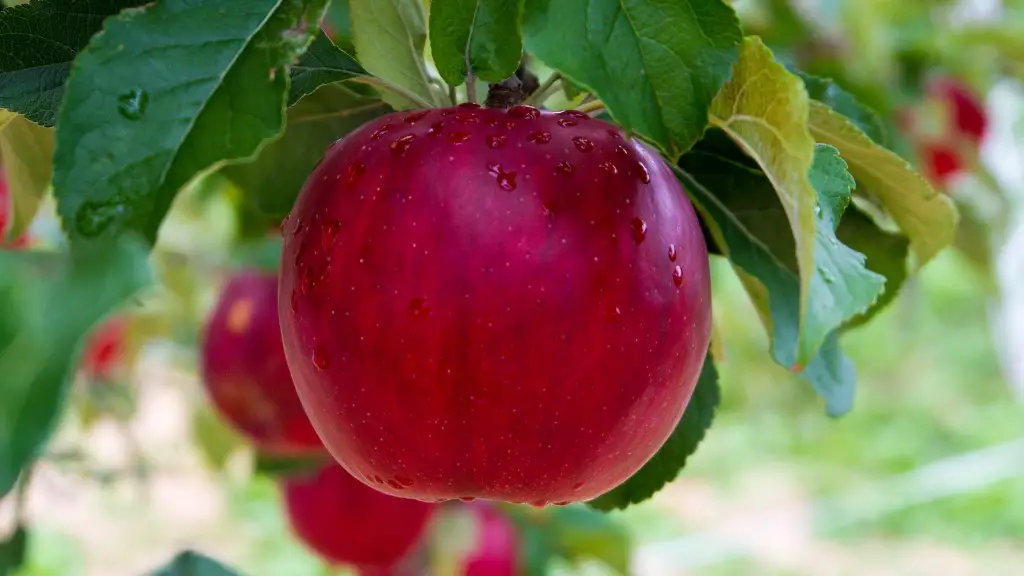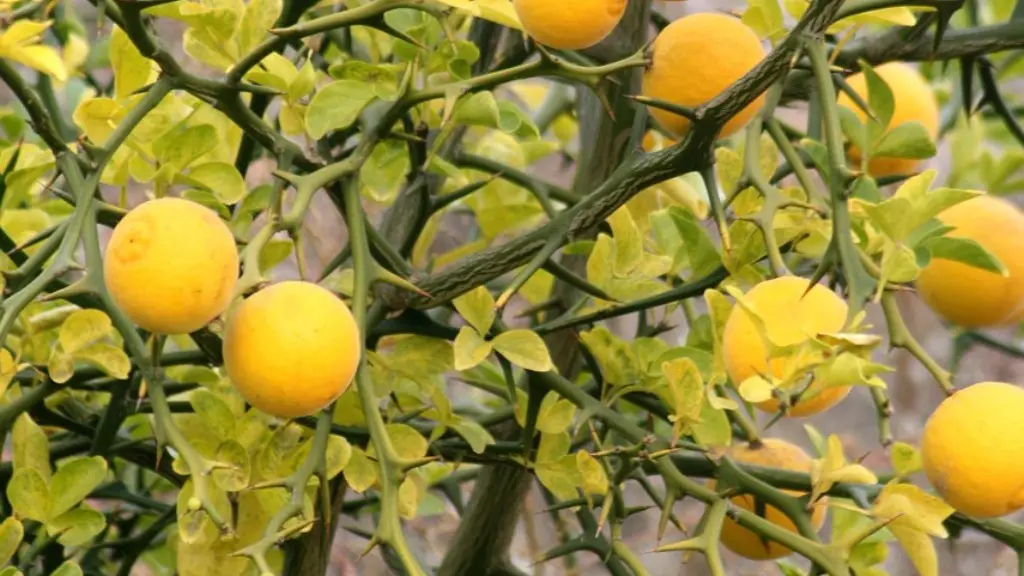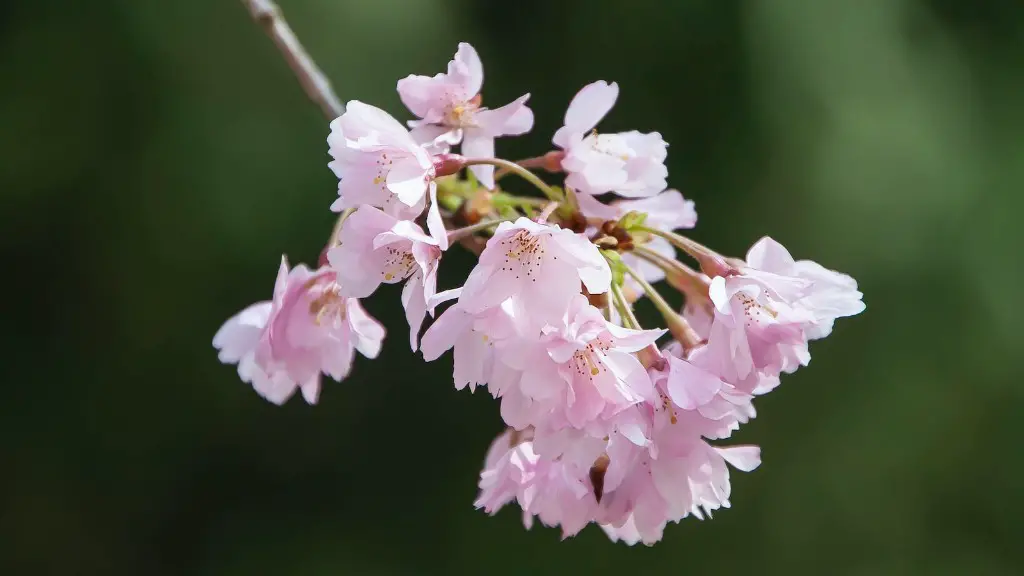An avocado tree can grow in Texas if proper care is taken and the tree is given sufficient water and light. But, there are a few things to consider before deciding to grow an avocado tree in this state. It is important to understand the environmental requirements of the species and if they can be met in Texas.
Avocado trees need lots of sun and well-drained soil. They can tolerate occasional cold temperatures and drought, which makes them a suitable crop in the state. The Southern Texas may have the most suitable climate for their growing, but depending on the avocado variety, some areas of Northern Texas can also do well. Once an ideal location is found, the tree should be planted in the fall.
It is also important to consider the maintenance of the tree. Avocado trees require frequent fertilizing and irrigation to ensure healthy growth. Due to the unpredictable Texas weather conditions, the soil should be closely monitored and well drained. Pruning and training is also necessary to ensure that your tree stays healthy and grows properly. The time and effort required for these activities can be a major factor in deciding whether it is worth it to grow your own avocado tree in Texas.
Experts suggest that while it can be difficult to grow avocados in the Texas climate, there are ways to make the process easier. Installing a drip irrigation system is a great way to ensure that your tree receives enough water. Additionally, planting it near a wall or building can help protect it from wind and other elements. If possible, planting two trees near each other can also increase the likelihood of successful pollination.
It may be a challenge, but many home growers in Texas have been able to successfully grow avocado trees. Keeping in mind the environmental conditions and proper maintenance that is required, this can be a rewarding and flavorful experience for anyone willing to take the time and effort.
Signs of a Thriving Avocado Tree
Knowing the signs of a healthy avocado tree is as important as planting and caring for it properly. When your tree gives off a delightful sweet smell, it is a sure sign that it is thriving. The leaves should be dark green and full, with a robust flower, and fruit production.
Proper fertilization helps the tree grow healthy, and avocados are very sensitive to the kind and amount of fertilizer used. Too much of it can cause a nutrient imbalance, which can be fatal to the tree. Therefore, it is important to use the right fertilizer and in the right amoun.
You should also look out for insects and diseases that can affect the health of the tree. Insects and fungal diseases like root rot can cause severe damage, so it is important to act quickly if any of these are spotted. These can be treated with special insecticides and fungicides designed for avocado trees.
Lastly, it is important to watch out for any signs of dehydration. The tree needs enough water and if it is not receiving it, leaves will start to turn yellow and foliage will become dry. If this happens, you should increase watering to revive the tree.
Benefits of an Avocado Tree
Growing an avocado tree can bring several benefits, most notably a delicious yield of avocados when in season. The fruit is a great source of healthy fat and several essential vitamins, making it a great addition to your diet.
Additionally, avocado trees provide shade and are attractive to many beneficial insects like bees and butterflies, which help protect other plants from pests. Moreover, they have a high water and nutrient retention value which can be beneficial for conservation.
Growing an avocado tree in your backyard can be a great investment for the long-term, as a single tree can yield an abundance of fruit for many years. Due to its long lifespan, it can even become an heirloom that can be passed down from generation to generation.
On top of that, the tree also makes a beautiful addition to your outdoor space. Its lush foliage and unique flowers add color and texture while being drought-tolerant. Additionally, its size and shape can be easily changed with pruning and training so it can fit in any landscape.
Availability of Avocado Varieties in Texas
The kind of avocado that is grown in Texas depends on the particular climate of the area. For the best results, cold-hardy varieties should be planted in regions with colder climates, while in Southern Texas, more sensitive varieties can be planted.
Dwarf avocado trees are usually used for easy harvesting and growing in small spaces, however these may produce a small yield. On the other hand, larger varieties require more space and a high level of care but can produce bumper crops.
Mexican avocados are popular in Northern Texas and lead the chart in terms of productivity, while Pinkerton and Zutano perform well in Southern Texas. Bacon and Fuerte are also favorites and can make attractive additions to any backyard.
To help make the decision easier, research should be done before buying the tree. Also, ensure that it is sourced from a reliable producer, as there can be a difference in quality and may affect the tree’s performance.
Protecting an Avocado Tree from Pests
There are many reasons why pests may be attracted to avocado trees. These include the presence of certain conditions such as inadequate nutrition or weak defenses due to a lack of proper pruning and care. Some of the common pests that can affect avocado trees include scale insects, mealybugs, whiteflies, aphids, and mites.
To prevent pests from attacking avocado trees, it is important to keep the soil healthy and keep the area clear of debris and weeds that may harbor these insects and diseases. Regular pruning and organic pest control methods can be adopted in order to keep these unwanted visitors at bay.
Additionally, beneficial insects can be introduced to the tree to help keep other species in check. Natural predators like ladybugs, green lacewings, and even birds can help get rid of pests like aphids and mites.
For extreme infestations, chemical pesticides may be necessary. Make sure to read the instructions carefully before using any pesticides and be sure to use the proper safety equipment.
Nutritional Requirements for an Avocado Tree
Avocado trees have specific nutritional requirements which should be met in order for it to thrive. These include nitrogen, phosphorus, potassium, as well as other secondary nutrients like iron and magnesium. The specific content of each of these nutrients should be checked before applying any fertilizer to the tree.
Incorrect fertilizer application can lead to nutrient deficiencies that can in turn cause stunted growth, yellow and wilted leaves, and production of poor yields. To avoid any of these, use the right quality of fertilizer and apply it correctly at the right time of the season.
Organic fertilizers are a great option for feeding avocado trees, as these are longer lasting and provide the tree with the necessary nutrients without polluting the environment. Compost or high-grade fertilizer can be used to help your tree grow and produce healthy yields.
Additionally, it is recommended to mulch around the roots of the tree in order to prevent weeds from competing with the tree for nutrients. Mulch can also help maintain soil moisture and reduce soil erosion. This can be a great way to ensure that your tree receives the right amount of nutrition at the right time.




